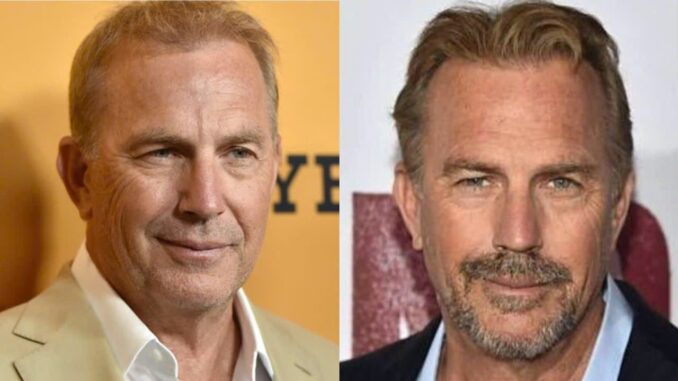
The Dutton Dynasty in Disarray: Unpacking Kevin Costner's Exit from Yellowstone
Yellowstone, the neo-Western saga that captured the American imagination, is as much a story of land, legacy, and ruthlessness as it is a testament to the allure of its leading man, Kevin Costner. For years, Costner’s John Dutton, the stoic and often morally ambiguous patriarch, stood as the immovable force at the heart of the show. His weathered face, his measured pronouncements, his almost palpable connection to the Montana landscape – these were the pillars upon which the Yellowstone empire was built. Thus, the announcement of Costner's departure, accompanied by rumors of on-set conflicts and strained relationships, sent tremors through the Yellowstone fanbase, leaving many wondering: what really happened? Unpacking the reasons behind Costner's exit is a complex undertaking, a tapestry woven with threads of scheduling conflicts, creative differences, and the inevitable clash of egos in the high-stakes world of television.
One of the most prominent threads in this tapestry is the issue of scheduling conflicts. Costner, a seasoned Hollywood veteran with a career spanning decades, has always been more than just John Dutton. He is a filmmaker, a director, and a writer with his own ambitions. He had been developing a passion project, a sprawling four-part Western saga titled "Horizon: An American Saga," for years. This ambitious project demanded a significant time commitment, requiring him to be on location for extended periods, a commitment that allegedly clashed with the filming schedule for Yellowstone. Reports suggest that Costner desired to reduce his shooting days on Yellowstone to dedicate more time to "Horizon," a proposition that reportedly did not sit well with the show's creator, Taylor Sheridan, or the network, Paramount. This clash over scheduling, at its core, was a conflict between a television show demanding its star's undivided attention and a filmmaker pursuing his own artistic vision.
Beyond the logistical challenges, creative differences reportedly played a significant role in the unfolding drama. While Costner brought gravitas and a certain stoicism to the role of John Dutton, he also had his own ideas about the character's trajectory and the overall direction of the show. Sources claim that Costner felt his character’s arc was being sidelined, overshadowed by the burgeoning storylines of the younger Dutton siblings. He allegedly wanted a more central role, a greater influence on the narrative, and a chance to explore different facets of John Dutton's personality. This desire for creative control, while understandable from an actor deeply invested in his character, reportedly clashed with Sheridan's vision for the show and his meticulous control over the narrative. In the realm of creative endeavors, such clashes are not uncommon, but in the context of a highly successful and fiercely guarded franchise like Yellowstone, they can quickly escalate into significant problems.
Finally, the elephant in the room: the reported tensions and strained relationships on set. While concrete details are scarce and shrouded in Hollywood secrecy, rumors of personality clashes and disagreements between Costner, Sheridan, and other members of the cast and crew have been circulating for months. The pressure cooker environment of a demanding television production, coupled with the egos and ambitions involved in a project of Yellowstone's magnitude, can create a fertile ground for conflict. While such tensions are not always uncommon in the industry, the stakes are particularly high when they involve the leading man and the creative force behind the show. The departure of a central figure, even one as established as Costner, inevitably raises questions about the internal dynamics and the overall health of the production.
In conclusion, Kevin Costner's exit from Yellowstone is not a simple story with a singular answer. It is a multifaceted drama driven by a confluence of factors: the competing demands of scheduling, the inevitable friction of creative differences, and the ever-present potential for strained relationships in the high-pressure world of Hollywood. While the official narrative might downplay the more contentious aspects, the whispers and rumors paint a picture of a power struggle, a clash of visions, and ultimately, a parting of ways. The Dutton ranch, like the show itself, is a land of conflict and ambition, and Costner's departure serves as a stark reminder that even the most formidable figures can be swept away by the currents of change and the relentless pursuit of their own destinies. Yellowstone will undoubtedly continue, but the absence of John Dutton, the man who defined it for so long, will forever leave a noticeable void in the heart of the Dutton dynasty.
